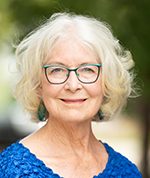
Sam Bush says it starts on the very first downbeat.
“It’s that feeling of positive energy, one that starts right away and that one you can’t predict. Music is just a large circle of communication — it starts with us on the stage and it is not a job exactly…” he pauses to look for the right word, “… it is our joy, to get it going amongst all the people in the room.
“What does it take to make it happen?” he asks rhetorically, then chuckles. “Well, first you’ve got to be in tune.”
Getting in tune means more than just adjusting string tension to find the right pitch. It requires one to be in sync with their context and in sympathetic relationship with their collaborators. It’s a process that takes place over a lifetime.
Godfather and nonpareil maestro of the newgrass genre, Bush was practically a virtuoso of the mandolin from the very beginning. Born in Bowling Green, Kentucky, in 1952, he bought his first mandolin at age 11 and was winning national awards by the time he was a teenager. Now at age 64, the Grammy and International Bluegrass Music Association award-winning musician admits he never aspired to be on the stage, let alone be king of a genre.
“I didn’t start out the lead singer or the emcee, it just got that way because as the bands and the relationships within them would evolve, so would our different roles,” Bush says. “Now I am comfortable [being the lead]. If anything I have to learn how to not talk too much! Correct me if I’m wrong, but I think people come to hear the music.”
Bush says music is maybe the only artistic medium capable of actually transferring, in real time, the experience and feelings of the artist to the listener.
As is typical of any statement from a master or guru, Bush’s description of his art is as simple as it is profound. Humbly, from his station atop the field of fiddlers, pickers and stringers both living and dead, Bush’s wisdom is that his life is not separate from his music and maybe it never was.
In 2016 Bush released his first album in seven years, Storyman, an aptly named record that blends the technical fluency and storytelling of bluegrass with the joyful, groovy and jammy hallmarks of newgrass to tell stories about his life.
Many of the songs are real-life stories drawn from the friendships he’s made along the way. Bush co-wrote every track with friends, including the late Guy Clark, Emmylou Harris, Jon Randall Stewart and Jeff Black. One song, “It’s Not What You Think,” he co-wrote with all five members of the Sam Bush Band, made up of guitarist Stephen Mougin, banjo-playing Scott Vestal, bassist Todd Parks and drummer Chris Brown.
“Storyman is the first time the five of us ever wrote a tune together, which is kind of a special feeling,” Bush says. “The kind of friendship we have… it’s the kind where you can not see each other for months and then when you do, you’re right back.”
Like last week, after taking the winter off, the band got back together for a rehearsal.
“We are right back to the friendship and the love we share, built on a mutual trust,” Bush says. “We trust each other musically as well as personally. I’ve been fortunate to have been playing with these guys a long time and we feel— we know — that when we hit the stage we can succeed.”
Loosely, Bush describes success as “that positive feeling,” but there’s also something more to it, although it’s a bit tricky for him to articulate. He says in playing his music, success isn’t knowable until it’s reached; it’s the product of striving and playing, recognized only as it unfolds.
The trust the band members have in one another is a vital foundation for their work, but on its own it wouldn’t be enough to account for the drive they each have to play day after day. Bush chalks it up to the way they push each other, not overtly and competitively, but unconsciously and collaboratively.
“Somebody once told me I should play a solo show,” Bush says. “Well, that doesn’t interest me so much because, like for instance, when I hear Scott [Vestal] play, or any of the guys in the band for that matter, something in it spurs me on to play better. That’s what I feel my own role is — we all play to push each other to play better.”
Long ago, Bush stopped taking for granted the joy of getting to play with friends and making new friends along the way, but it would all be for nothing if it weren’t for joy. He almost can’t help himself when it comes to expressing and talking about the jubilance of it all; it’s in him, part and parcel of everything that he does. It can make one wonder, has Sam Bush ever had a bad day?
“Of course. We all do,” he says. “But as an old friend, [pianist and songwriter] Leon Russell, once told me, you can’t know the good days without the bad. I guess I’m just more interested in the wisdom of a good day.”














